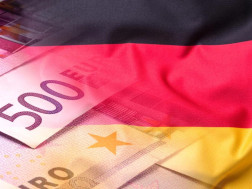The International Monetary Fund (IMF) on Tuesday said Germany was set to suffer from a deeper recession than previously predicted.
Europe's largest economy is expected to be the only one of the Group of Seven (G7) highly industrialized nations that will not enjoy growth in 2023.
How the figures look
The IMF said that Germany's economy, rocked by high inflation and a slump in manufacturing, is expected to shrink by 0.5% this year.
The Washington-based lender had forecast a 0.3% contraction back in July.
In its revised opinion, the IMF said Germany was facing numerous obstacles, including "weakness in interest-rate-sensitive sectors and slower trading-partner demand."
The IMF said Germany was on track to make a recovery in 2024 and grow by 0.9%, a gloomier forecast than the 1.3% figure that had been anticipated.
Fellow G7 member Italy, which is also grappling with inflation stubbornly above the eurozone average, saw its growth prediction slashed by 0.4% points to 0.7%.
Across the eurozone single currency area, the IMF slightly lowered its 2023 forecast to 0.7% growth.
However, there was good news for the 20-nation group's second-largest economy, France. A "catch-up in industrial production and external demand" there led the IMF to predict a 1% expansion for 2023, up from the previous 0.8% estimate.
Why is Germany struggling?
The IMF's chief economist, Pierre-Olivier Gourinchas, said that two "very powerful forces" were taking their toll.
Germany's strong manufacturing sector is very energy intensive and was previously heavily dependent on energy supplies from Russia that have now dried up.
The tightening of monetary policy and a rise in inflation context have also seen a relative weakening of investment.
Germany is also facing long-term structural problems such as an aging society and a shortfall of skilled workers, DW reports.
















